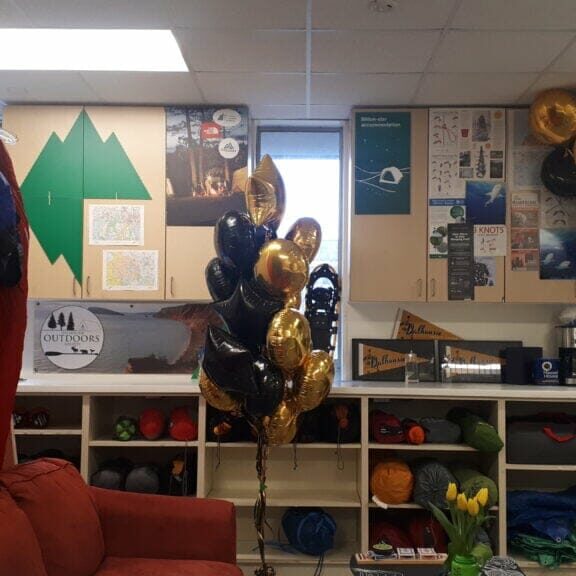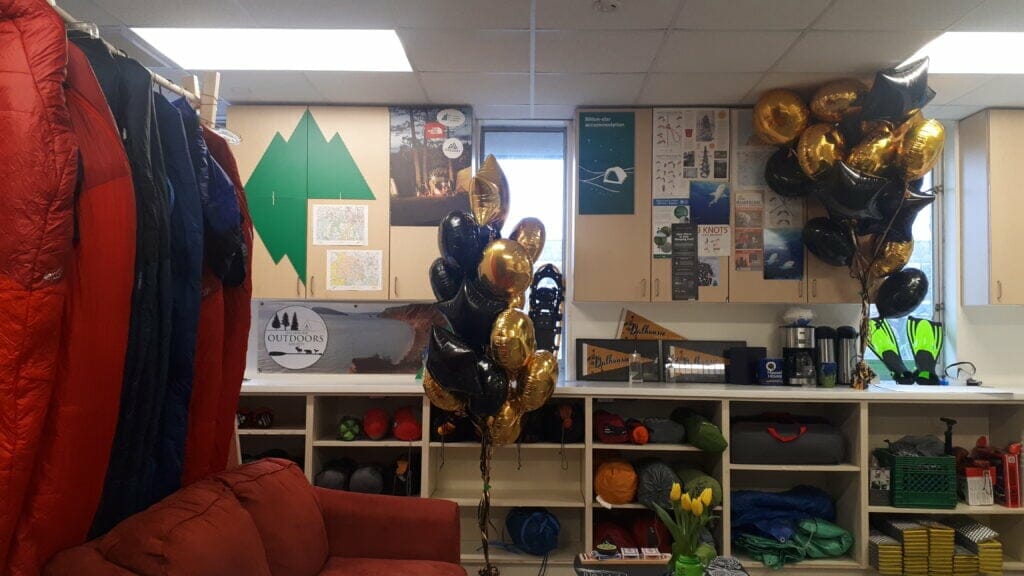
Accessibility of Dal Outdoors Society questioned
DOS admits its accessibility hurdles still a work in progress
Editor’s note: DOS president Sam Cutcliffe also serves as the Gazette’s Dalhousie Mackerel Editor.
One Dalhousie University student society was questioned about accessibility accommodations for students with disabilities at a recent Dalhousie Student Union meeting.
The Dalhousie Outdoors Society (DOS) had requested to be part of the levy increase referendum for students during the Jan. 31 DSU meeting, which passed with all but one “no” vote.
That vote was Meredith Brison-Brown’s, who is the disabled students’ community representative. She said that DOS “is yet to consult with or implement any of the suggestions for the needs and the inclusion of the disabled students’ community into the work and services they provide.”
DOS is one of more than 250 societies at Dalhousie but is one of the few levied societies. It gets a direct payment from each student towards their budget — full-time students pay $0.50 a year while part-time students pay $0.25.
DOS was hoping to double these levy payment costs for the next school year, but the referendum vote failed earlier in March.
“I know some students just generally aren’t able to participate in a lot of societies because that’s just not front of mind when they’re developing things,” Brison-Brown said of her vote in an interview with the Dalhousie Gazette. She said that disabled students might second-guess attending a trip out of accessibility concerns.
“How can you do that if there might be barriers there? There might be gear that’s not oriented toward you. Maybe they’re going on hikes that aren’t on accessible trails.”

Concerns raised in December
DOS president Sam Cutcliffe said accessibility concerns first arose in December when the society requested a permanent location for their gear library, a space holding gear that is free for use by all Dal students. It includes everything from tents and sleeping bags, to snorkel gear and surfboards.
“[Brison-Brown] voiced their opinion that should DOS get the space, they would like to see more accessible trips and more accessible gear for disabled students, which I totally agree with,” Cutcliffe said in an interview with the Gazette.
Cutcliffe said he discussed solutions with Brison-Brown in mid-January and added a page to the DOS website outlining accessible resources that already exist for people with disabilities. The page includes links to accessible recreation programming put on by Halifax, Canadian Adaptive Snowsports and Alltrails, which tracks wheelchair-accessible trails throughout Nova Scotia.
Cutcliffe said he made a mistake in forgetting to alert Brison-Brown that this page had been added to the website before the vote on Jan. 31.
Work in progress
While the webpage was a first step, Cutcliffe said DOS was heavily impacted by COVID-19 pandemic restrictions and the society has only just gotten back on its feet this school year.
“While I do fully agree that accessibility is huge … growth isn’t always linear, and we didn’t necessarily have the capacity to do more than what we were currently doing,” Cutcliffe said.
Brison-Brown said she wants to bust the myth that taking into account accessibility issues is challenging.
“If you want to get really detailed, it can be. But there are so many things you can do and a quick Google shows a lot of things from the Halifax recreation department, a lot of resources there,” Brison-Brown said.
Now that the society has been able to “step back and breathe”, Cutcliffe suggested adding an accessibility representative to the DOS executive. After discussion within the society, he said the DOS instead decided on adding a second trip leader coordinator to focus on accessible trips and include more first-time trip participants.
Cutcliffe said he doesn’t feel he can make suggestions to improve DOS accessibility because he doesn’t have the necessary lived experiences. Brison-Brown would like to see accessibility built into the DOS exec instead of relying on outside voices for suggestions.
“It sometimes can be assumed that disabled students can just sort of be this resource. Like ‘Oh, you know about this, can you tell us this stuff?’” Brison-Brown said. “This is expertise that we have from lived experience and it’s something that should be taken more seriously.”






